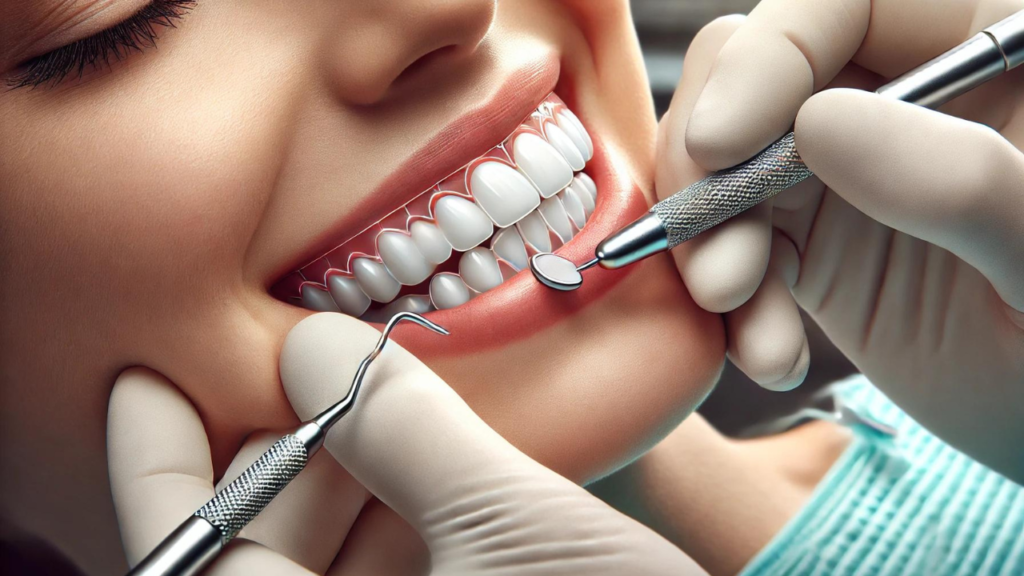Your oral health is essential to your overall well-being. A healthy smile doesn’t just help you feel confident—it can also prevent more serious health problems.
But how do you know when it’s time to visit the dentist? Ignoring certain symptoms might lead to long-term issues.
In this article, we’ll explore five key signs that indicate you need to schedule a dental appointment.
Table of Contents
Toggle1. Persistent Tooth Pain or Sensitivity
Tooth Pain That Doesn’t Go Away
If you have tooth pain that lingers for more than a day or two, it’s a clear sign something isn’t right. Persistent pain can indicate a cavity, an infection, or even gum disease.
Sometimes, the pain may come and go, making it easy to ignore. However, dental issues rarely resolve on their own.
Sensitivity to Hot or Cold
Feeling sharp pain when you eat ice cream or drink hot coffee? This sensitivity could be a sign of tooth enamel erosion or an exposed tooth root.
Over time, these issues can worsen, leading to further damage. Your dentist can identify the problem and recommend a solution, like a protective sealant or a fluoride treatment.
2. Bleeding Gums During Brushing or Flossing
What Causes Bleeding Gums?
Healthy gums shouldn’t bleed when you brush or floss. If you notice blood in the sink, it’s often a sign of gum inflammation, also known as gingivitis.
Left untreated, gingivitis can progress to periodontitis, a more severe form of gum disease that can lead to tooth loss.
Other Gum Symptoms to Watch For
Bleeding isn’t the only symptom to pay attention to. Swelling, redness, or tenderness in your gums also signal a problem. Regular dental check-ups can prevent gum disease from becoming serious, saving you time and discomfort later.
3. Bad Breath That Doesn’t Improve
When Breath Mints Aren’t Enough
Everyone has bad breath occasionally, especially after eating certain foods. But if your bad breath is constant—even after brushing your teeth—it might be a sign of a deeper issue.
Conditions like gum disease, cavities, or a dry mouth could be to blame.
The Role of Plaque and Bacteria
Bad breath is often caused by bacteria buildup in your mouth. Without proper cleaning, plaque can accumulate, creating odors that brushing alone won’t fix.
A professional cleaning can help remove plaque and leave your mouth feeling fresh again.
4. Loose or Shifting Teeth
Why Teeth Become Loose
Adult teeth should never feel loose. If you notice any movement, it could be due to bone loss from gum disease, trauma, or other underlying conditions.
Teeth that shift out of place might also signal alignment issues, which can affect your bite and jaw health.
When to Act
Ignoring loose teeth can lead to bigger problems, including tooth loss. A dentist can assess the issue and discuss treatment options, like deep cleaning or braces, to restore stability and prevent further complications.
5. Changes in Your Mouth or Jaw
Unexplained Sores or Lumps
Sores or lumps in your mouth that don’t heal within two weeks could indicate a more serious problem. While many sores are harmless, some might be signs of oral cancer or infections that require immediate attention.
Jaw Pain or Stiffness
If you experience pain or clicking sounds when you chew, you might have a condition like temporomandibular joint (TMJ) disorder.
TMJ disorders can cause headaches, earaches, and difficulty opening your mouth fully. A dentist can help diagnose the issue and suggest effective treatments.
Supporting Your Oral Health
Prevention Is Better Than Cure
Regular dental visits are key to preventing many of the issues discussed above. Even if you don’t have symptoms, routine check-ups and cleanings can catch potential problems early.
Simple Tips for Healthy Teeth
- Brush and floss daily.
- Use fluoride toothpaste.
- Replace your toothbrush every three months.
- Avoid sugary foods and drinks.
The Cost of Ignoring Dental Problems
Delaying a trip to the dentist can make minor issues worse—and more expensive to fix. For example, treating a small cavity early is much simpler than dealing with an advanced infection that requires a root canal.
Conclusion
Your teeth and gums play a critical role in your overall health. Persistent pain, bleeding gums, bad breath, loose teeth, and changes in your mouth are all signs that you should see a dentist. Don’t wait for these problems to escalate—schedule a check-up and keep your smile healthy.
Taking action now can save you time, money, and discomfort in the long run. Remember, your dentist is your partner in maintaining excellent oral health.
By paying attention to these signs and visiting your dentist regularly, you can keep your teeth strong and your smile bright for years to come.








